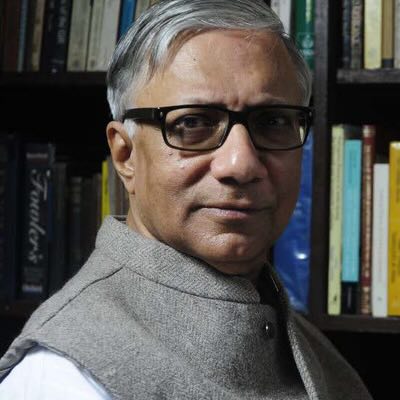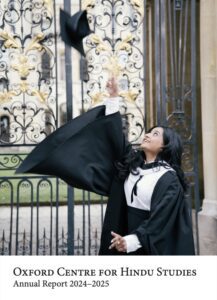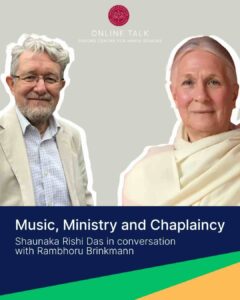Lectures of the J.P. and Beena Khaitan Visiting Fellow
First Talk: My Lord, My Love
By Prof. Sukanta Chaudhuri FBA
Week 1, Thursday 1 May, 2.00-3.00, OCHS Library
A well-known Tagore song begins ‘Prabhu āmār, priya āmār’ (My lord, my love). Tagore’s default mode of conceiving the divine is highly personal and often intimate, frequently viewing the deity as a lover or beloved.
A prominent source for this last development is Vaishnav poetry, celebrating the love of Krishna and Radha. But across the range of his writings, the love-relationship with the divine branches out in a variety of ways. In one direction, the divine presence embraces all nature and the cosmos. In another, it assumes an intimately human and even everyday dimension. Tagore subdivides his songs of devotion and worship (pujā) into a number of categories, but they overrun one another’s bounds and exceed them all. At the same time, his songs of human love (prem) expand to take on deeply philosophic and spiritual implications.
Tagore’s love-poetry and his spiritual poetry thus meld to provide a uniquely rich compound, enriching the notions of both the divine and the human.
Second Talk: The God Within
By Prof. Sukanta Chaudhuri FBA
Week 6, Thursday 5 June, 2.00-3.00, OCHS Library
One of Tagore’s most celebrated tropes is the jiban-debatā or ‘god of life’, specifically the subject’s life. This divine presence is antaratama (innermost), embedded in the subject’s deepest being yet distinct from the latter’s familiar identity. It embraces human paradigms yet is immeasurably beyond them. The human condition partakes of its divinity within the contours of its own being.
The jiban-debata can be male or female, casting the human subject in the opposite gender. It seeks and desires the human entity it has created, fulfilling itself thereby: the divine needs the human no less than the human the divine. In the totality of its aspects, the jiban-debata thus becomes a universal entity: deeply personalized and interiorized yet manifesting itself in all nature and the cosmos. Humanity too thereby exceeds its accustomed bounds to become a universal force.
Here Upanishadic concepts blend with the Vaishnav in the combination Tagore declared as his core spiritual chemistry. There is also organic use of the poetic register of human love. The divine and the human are in rare conjunction, not to say identification, in the concept of the jiban-debata.
Sukanta Chaudhuri, FBA, is an Indian literary scholar, now Professor Emeritus at Jadavpur University, Kolkata. He was educated at Presidency College, Kolkata and the University of Oxford. He taught at Presidency College from January 1973 to December 1991 and at Jadavpur University thereafter till his retirement in June 2010. At Jadavpur, he was founding Director of the School of Cultural Texts and Records, a pioneering centre of digital humanities in India. His chief fields of study are the English and European Renaissance, Rabindranath Tagore, translation, textual studies and digital humanities. He is the editor of The Cambridge Companion to Rabindranath Tagore and the Oxford Tagore Translations, and chief coordinator of Bichitra, the online Tagore variorum. He has held visiting appointments at many academic institutions, including All Souls College, Oxford; St John’s College, Cambridge; the School of Advanced Study, London; University of Alberta, University of Virginia; and Loyola University, Chicago. He is an Honorary Fellow of the Asiatic Society, Kolkata and, in July 2021, was elected a Corresponding Fellow of the British Academy.




